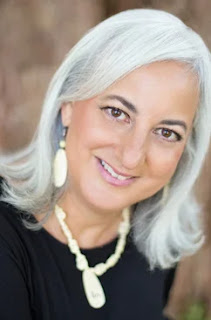Tara Lynn Masih is the author of the new book How We Disappear. Her other books include My Real Name is Hanna. She lives in St. Augustine, Florida.
Q: Over how long a period did you write the novella and stories collected in How We Disappear?
A: Most of the stories were completed and published in the last two years. However, I began the novella in 2009 and another story, which was heavily expanded, first appeared in 2003. So these are largely recent stories with a few thrown in that have older roots.
Q: You write, “I didn't realize, until I started organizing this collection, that so many of my stories deal with the theme of disappearance.” Why do you think you focused on that theme, even without initially realizing it, and how was the book's title chosen?
A: Well, specifically, I’d have to point to someone I was in a relationship with many years ago who took practice runs at disappearing (which I didn’t recognize as practice runs at the time, of course). Then he disappeared entirely for two years. Needless to say, it was traumatic.
On a more general scale, as this book highlights, there are so many different ways to disappear, and we all deal with its repercussions throughout our lives, literally and metaphorically. Maybe because my background is in flash fiction and in the spaces between words and acts, I am more aware and interested in those themes of absence and what is left behind, which sometimes is more powerful than the actual presence.
Also, these days, I think we are all struggling with the future, which has become this vast unknown “country,” what with the current war in Ukraine, global warming, and the growing ecological disasters our families and neighbors are dealing with. Our minds are trying to cope and reshape and find resilience. I hope there’s some of that in this book, paths to coping.
Q: The writer Michael Parker said of the book, “How We Disappear traffics, beautifully, in the liminal spaces between past and present, imagination and memory.” What do you think of that description?
A: Well, I read this question after I answered the previous one, and they sort of go together. I love Parker’s writing. I’m in awe of his imagination, heart, and ability to create his own internal cadence and rhythm in prose.
So I was deeply honored to get his blurb (which of course reflects his great writing style!) and see that he understood the concept of working with those spaces. Spaces many of us try to fill to an unhealthy level or spaces we ignore, which cause other issues.
He also understood that, within many of the stories, events overlap, meaning there is no traditional, linear plot in some cases, that memory is fluid and evolves, and our relationships shift as we move around in those spaces that others leave behind or that we might have just left ourselves.
Q: What do you hope readers take away from the collection?
A: I hope readers find something that resonates. I hope they might allow themselves to see through new windows of experience, to not just drive by “the other” but to stop and give them consideration. And I hope they can get some comfort in our ability to control our destiny through the choices we make at pivotal moments. I also hope readers might accept that loss is never an absolute if we leave ourselves open.
I also wanted to highlight that on a cultural level, it’s mostly young women and women of color who “disappear.” That we live our lives with that dark possibility and are always on the edge of wondering if and when we’ll be next, avoiding anything that might be a threat.
Which is an essential survival tactic, but it also can inhibit us from living our best lives. Women often have to make these choices on a daily basis. I want people to remember this when they put the book aside, that the best choices we make lead to the best lives lived. And to learn to follow instincts that get stronger and are honed with wisdom and age.
Q: What are you working on now?
A: I’m working on a new World War II novel set in the States. I can’t say much more than that, but I’m enjoying the research!
Q: Anything else we should know?
A: Most of my writing explores nature, and setting is often a character itself. I think nature is incredibly resilient and it can provide people with countless coping tools. If we could reduce even a portion of our tech addiction and pay more attention to what the natural world has to offer, we’d all be better off. That sounds kind of preachy, but it’s backed up by science.
In How We Disappear, many of the characters disappear into and emerge out of the wild (or the sea) as it shapes their lives in different ways. Traditionally women have not been allowed into the wild. That image is finally evolving both in the real world and in literature.
--Interview with Deborah Kalb. Here's a previous Q&A with Tara Lynn Masih.



No comments:
Post a Comment